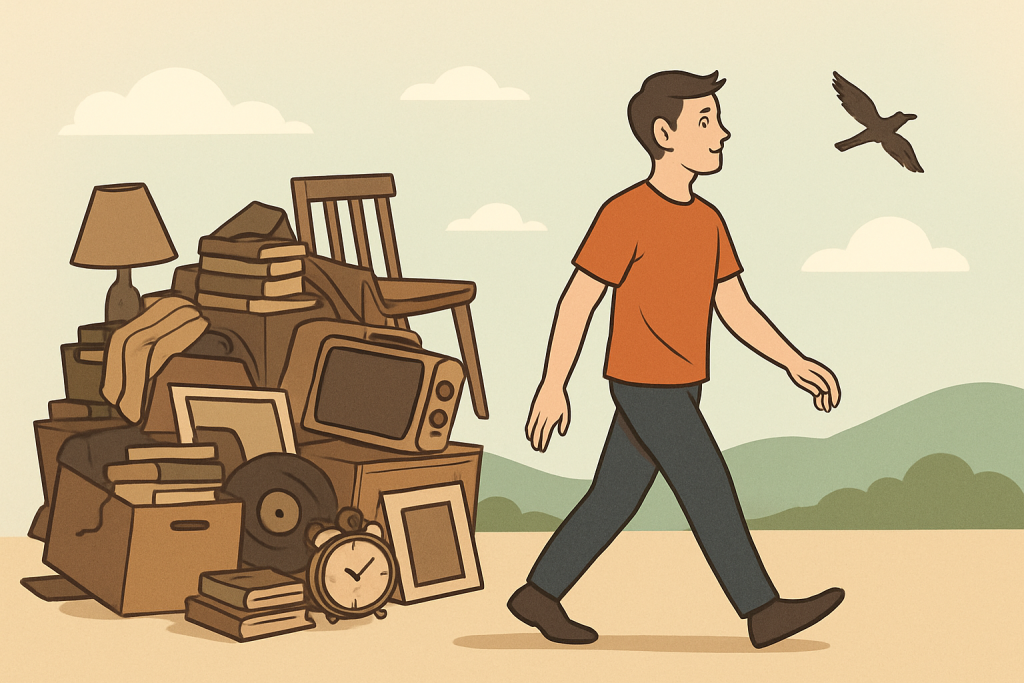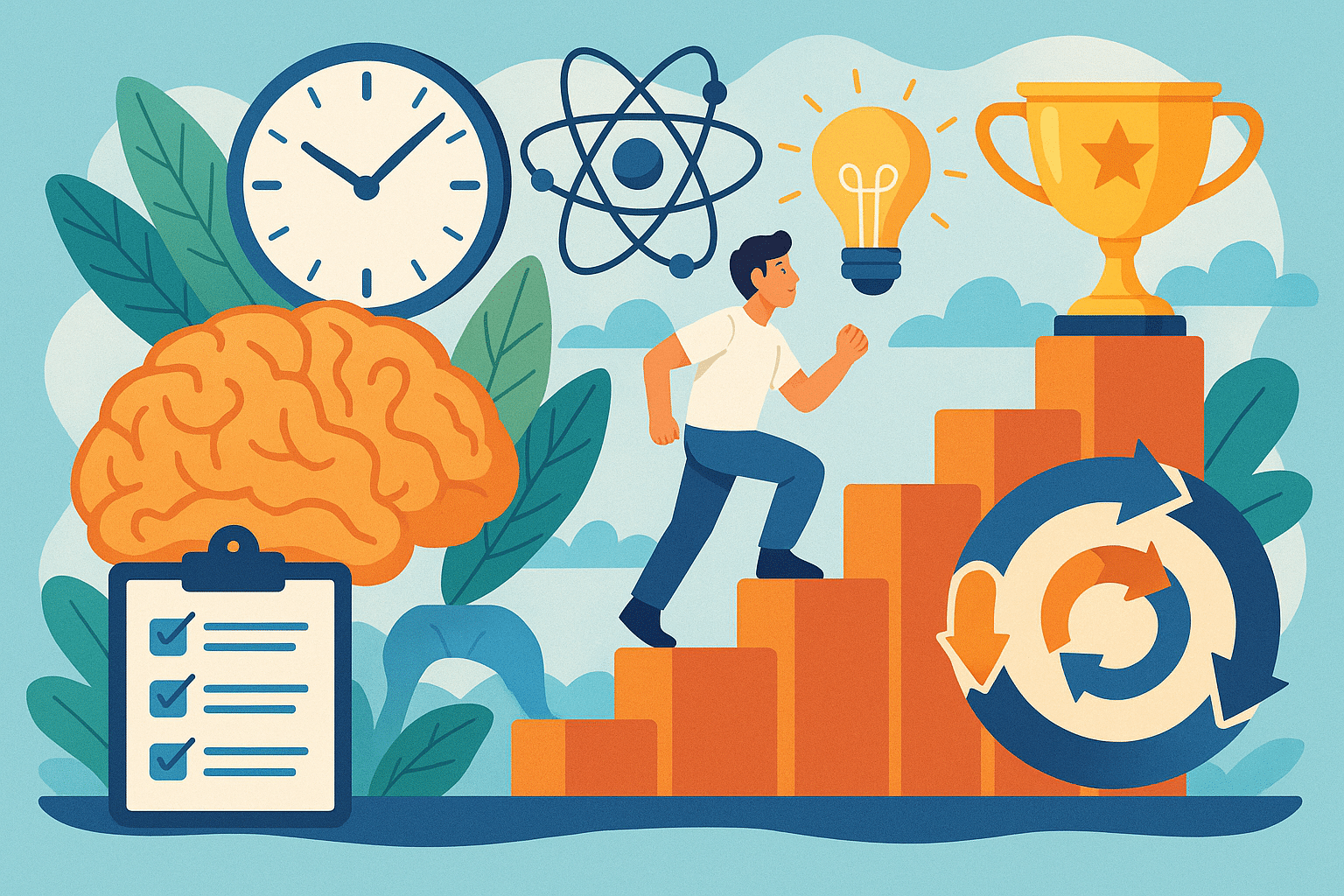In 2025, “How Minimalism Can Help You Find More Freedom” captures a bigger shift—beyond decluttering homes to include digital detox and eco-conscious living. This article explores new trends giving people mental space, flexibility, and meaning.

1. Minimalism Is Evolving: It’s About Less Digital Noise & More Freedom
Traditionally, minimalism meant fewer possessions. As Joshua Becker explains: “the practical benefits of owning less are more money, more time, more calm, more freedom”. Today, the conversation around How Minimalism Can Help You Find More Freedom includes digital spaces—reducing app clutter, managing screen time, and reclaiming attention.
A 2025 design trend emphasizes digital minimalism, urging users to streamline notification systems and inboxes. Digital minimalism frees up mental bandwidth and helps people stay present and engaged with priorities.
2. Sustainable Minimalism: Freedom That Benefits the Planet Too
In 2025, a growing trend merges minimalism with sustainability. People are choosing durable goods, ethical brands, and secondhand purchases. This movement supports the central theme: How Minimalism Can Help You Find More Freedom—not by adding more, but by choosing better and wasting less.
Benefits include:
- Reduced spending and bigger savings—financial breathing room
- Simplified upkeep = less effort, more time
- Clearer values: avoiding consumer culture, embracing mindful choice
3. Freedom from Clutter = Freedom for the Mind
Minimalism creates mental clarity. Princeton research shows messy environments impair focus. Organized spaces lower cortisol levels and improve cognitive performance.
Simplicity translates to flexible living:
- Easier moves or career shifts
- Less time cleaning means more time on meaningful projects
- Greater adaptability and less stress
4. The Global Perspective: Minimalist Movements Across Cultures
Voluntary simplicity is an international phenomenon. In 2025, young people worldwide are embracing low-desire living—China’s “lying flat”, Japan’s “Satori”, Gen Z’s FIRE philosophy. All these paths embody How Minimalism Can Help You Find More Freedom, transcending consumerism and unlocking autonomy.
5. Slow Living and Minimalism: A Twin Awakening
The slow living trend is closely tied to minimalism. It’s gaining traction in 2025 as people seek intentionality over speed. When people ask “How Minimalism Can Help You Find More Freedom,” they’re often referring to slowing down—creating time for relationships, creativity, and self-reflection.
Guide: 5 Practical Steps to Use Minimalism to Find More Freedom
If you’re ready to explore How Minimalism Can Help You Find More Freedom, start with these actionable steps:
- Declutter Physical Space
- Use category-based sorting (clothes, books, gadgets) timeslife.com.
- Apply the “one-year rule”: donate items unused for 12 months.
- Use minimalist storage: think multi-purpose, high-quality, not crowd-filling.
- Adopt Digital Minimalism
- Audit apps and devices: remove unused ones.
- Turn off non-essential notifications.
- Organize digital files and declutter email inboxes.
- Buy with Intention
- Prioritize secondhand or durable items.
- Ask: “Does this add real value?” before purchasing.
- Build a capsule wardrobe or toolkit to avoid impulse buying.
- Simplify Commitments
- Review obligations: eliminate obligations that don’t align with core values.
- Schedule free space in calendar: allow breathing room for creativity and rest.
- Focus on fewer, fuller experiences.
- Cultivate Mindfulness & Slow Living
- Practice one mindful task per day: walking, cooking, talking—device-free.
- Engage in regular digital breaks—maybe entire phone-free weekends.
- Redesign your environment to reflect calm—natural light, plants, clear surfaces.
Why It Works: The Synergy of Minimalism and Freedom
These approaches produce compounding benefits:
| Outcome | Benefit of Minimalism |
|---|---|
| Mental clarity | Less distraction, better focus, reduced stress |
| Financial freedom | Spend less, save more, more flexibility |
| Time freedom | Avoid chores or upkeep—more leisure |
| Emotional freedom | Relationships & purpose gain space and attention |
| Adaptability | Flexible to move, change jobs, life-stage transitions |
The focus on How Minimalism Can Help You Find More Freedom isn’t fluff—it’s a meaningful, well-researched roadmap to a less cluttered life.
Real-World Example: Digital Minimalism Wins
Consider a remote worker who:
- Cleans her inbox weekly
- Turns off Slack after 6 pm
- Limits social media to 30 min/day
Result? She reports better sleep, more creativity, and stronger relationships—all freedoms earned through intentional tech use.
Long-Term Vision: Minimalism as a Movement for 2030+
With global economic shifts, environmental urgency, and burnout culture, minimalism will likely deepen its impact. Expect these trends:
- Minimalist urban living: co-living, modular housing
- Tech detox zones and digital sabbaths
- Sustainability laws tied to consumer minimalist practices
Final Thoughts
The phrase How Minimalism Can Help You Find More Freedom is more than a catchy title—it’s a lifestyle transformation. Whether it’s by clearing your surroundings, streamlining your tech use, or making values-based purchases, minimalism offers a path to autonomy, intention, and well-being. In 2025, the freedom gained through minimalism is a cultural movement—and you can be part of it.
References
Becoming Minimalist. Benefits of Minimalism: 21 Benefits of Owning Less, 2025.
https://www.becomingminimalist.com/minimalism-benefits/
Sonoran Patients. Minimalism: Having Less Gives You More, April 2, 2018.
https://patients.sonoran.edu/2018/04/02/minimalism-having-less-gives-you-more/
Balance Through Simplicity. 11 Unexpected and Life-Changing Benefits of Minimalism, June 2025.
https://balancethroughsimplicity.com/unexpected-and-life-changing-benefits-of-minimalism/






